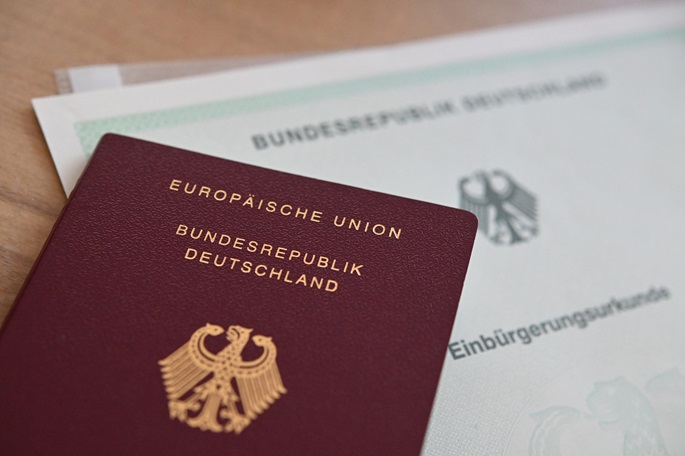Rush to get German passports as new law makes dual citizenship easier
Published : 31 Jul 2024, 19:56
A reformed citizenship law in Germany which makes it easier to obtain a second passport has prompted a wave of new naturalization cases, reported dpa.
In Berlin alone there were some 4,000 applications submitted in June. That is an average of 133 per day, an employee of the responsible local authority said.
No figures are yet available for July. However, the Berlin office had already received more than 5,000 applications in the three-week stretch from June 27 to July 21, an average of around 200 per day.
The new law went into effect on June 27. The statistics suggest that thousands of people were looking to get a head start on what can often be a lengthy undertaking.
In Germany, naturalization authorities in each of the 16 states are responsible for processing applications. Berlin is one of three city-states.
In Bavaria, the state Interior Ministry said an average of over 5,600 applications per month were submitted in the state from January to May. In June, the number soared to 8,400.
The state of Saxony said processing times in 2023 was between three and 18 months. It is expected to be even longer this year due to the heavy volume.
How the new law works
The naturalization reform put forward by Germany's three-party centre-left coalition government allows people to become German while retaining their original citizenship.
People can now apply for citizenship after living in Germany for five years, instead of the previous requirement of eight years, provided they meet all conditions.
Children born in Germany to parents from abroad will also be granted German citizenship if one parent has been a legal resident in Germany for five years rather than eight.
If applicants demonstrate "special integration achievements" through particularly good performance at school or work or civic engagement, they may be able to be naturalized after only three years.
An important aspect of the new rule is that people who obtain their German citizenship will not have to give up the citizenship of their native country, previously only possible for residents from other EU countries in Germany.
Likewise Germans who wish to become citizens of another country will no longer need special authorization from the German authorities. Previously, without authorization, they would have lost their German citizenship if they acquired another one.


